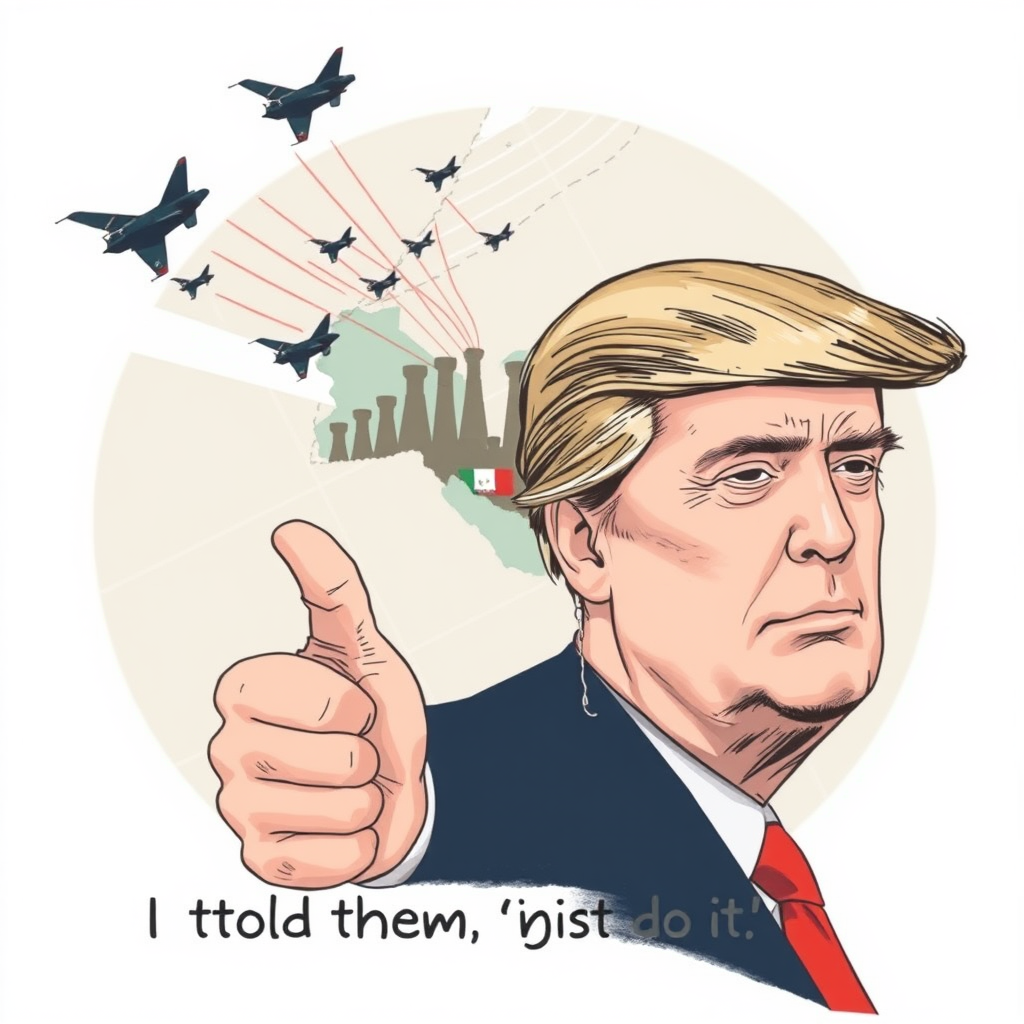Trump Admits Authorizing Israel’s Attack on Iran

President Donald Trump directly contradicted statements from his own administration regarding a recent large-scale Israeli military action against Iran, acknowledging in a social media post that he authorized the strikes. The revelation throws into question weeks of official messaging from the White House, which consistently maintained the United States had no involvement in the operation.
Israel deployed approximately 200 fighter jets targeting Iran’s nuclear facilities and high-ranking military leaders. Trump, via a post on his Truth Social platform at 5:56 a.m. EST – stating simply, “I told them, in the strongest of words, to ‘just do it’” – directly undermined Secretary of State Marco Rubio’s prior assertions that the strike was a “unilateral action” undertaken independently by Israel.
CNN’s Alayna Treene reported this morning that this is the first official response from President Trump concerning the attacks. Treene detailed that the administration had been preparing for the strikes, with officials briefed and instructed to anticipate the operation. A cabinet-level meeting convened by the President last night, though scheduled prior to the attack’s commencement, was focused on coordinating the official U.S. response, further indicating foreknowledge.
Trump’s post also included a lengthy message regarding Iran’s nuclear negotiations, claiming he had given Iran “chance after chance” to reach a deal, and warning that those who took a hardline stance during negotiations were now facing consequences. He alluded to further attacks and urged Iran to reach a deal to prevent further “death and destruction.”
Despite the aggressive action and Trump’s apparent endorsement, the administration maintains a desire to continue negotiations, though the viability of those talks, scheduled to resume Sunday in Oman, is now significantly in doubt. Secretary of State Rubio reiterated yesterday that the U.S. was not involved and that Israel acted in self-defense.
This situation presents a troubling pattern of conflicting messaging and raises serious questions about transparency within the administration. While presidents often operate with a degree of strategic ambiguity, Trump’s direct acknowledgement of authorizing a foreign military action – after days of official denials – is highly unusual and potentially destabilizing. The administration’s continued insistence on pursuing negotiations while simultaneously appearing to greenlight military action creates a confusing and contradictory foreign policy stance. It remains to be seen how this situation will impact regional stability and the prospects for a diplomatic resolution with Iran.